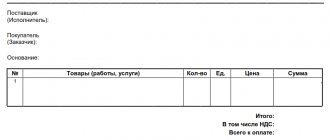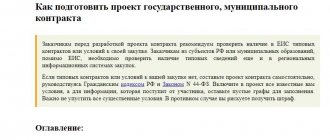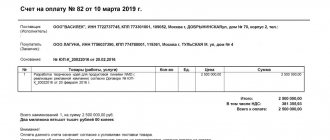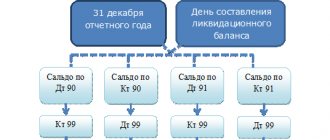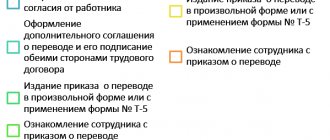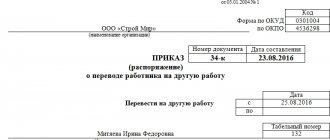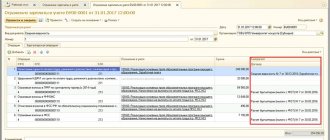General requirements
The document is an application (request) for the return of the transferred money. There is no unified form, so we draw up a free application. Be sure to include the following information:
- details of your organization: the application can be made on company letterhead;
- bank details for refund;
- name of the counterparty's manager, his position and full name;
- subject of the appeal (subject of the claim): indicate on the basis of which document (agreement, invoice agreement, universal transfer document) the letter is drawn up;
- subject of appeal: describe exactly how and as a result of which the money was transferred to the supplier’s bank account. Indicate the basis on which you need to return the money, your requirements for terms, include fines and penalties, if any, in the document that forms the basis of the obligation. Justify your position with the law or terms of the contract, on the basis of which the supplier is obliged to return the funds.
Attach copies of supporting documents: payment slips, bank statements about debits from the account. In the inventory, indicate not only the quantity, but also the number of pages in each of them. In the attachment to the letter, be sure to add a reconciliation act for mutual settlements. Confirm the application with the signatures of: the responsible executive, the financial director (chief accountant) and the head of the organization.
How can an accountant write a competent letter to a counterparty?
A properly structured dialogue with the counterparty will help save money, effort and time. Therefore, it is a good idea to have a few sample letters on hand.
Letter on the procedure for settlements under the agreement
In practice, if errors occur in payments, it is usually in payments under different agreements. However, confusion can also arise in settlements under one contract. Most often this happens if a framework agreement is concluded between the seller and the buyer.
Under such agreements, goods may be paid for periodically on the basis of individual applications or agreements. And the buyer may forget to indicate in the payment slip exactly which delivery he is paying for, or mix up the invoices.
All this threatens to result in a dispute about what the payment document confirms: the transfer of an advance payment towards a future delivery or payment for goods already delivered.
To avoid such disputes, the agreement must stipulate the procedure for offsetting payments in the event of ambiguities in payment invoices.
If the agreement does not contain such a condition, write a letter to the counterparty explaining the procedure by which you will set off payments.
A written response from the counterparty with consent will mean that you have agreed on the settlement procedure.
Agreement on Set-off of Mutual Claims
A set-off agreement is useful when you and your counterparty have mutual debts. In order to be able to conduct an offset, certain conditions must be met:
• counterclaims must be homogeneous. For example, the parties owe each other money. One has a debt for services rendered to her, and the second has a debt for a loan;
•the deadline for fulfilling each of the requirements must have arrived at the time of offset;
•the offset must not contradict the requirements of the law or contract. For example, you cannot set off a claim for which the statute of limitations has expired.
For offset, a statement from one party is sufficient. From the moment the other party receives the application, the offset is considered completed.
But the fact of receipt of such an application must be confirmed documentaryly (for example, a notification of delivery, a receipt) clause 4 of the Information Letter of the Presidium of the Supreme Arbitration Court dated December 29, 2001 No. 65. Therefore, in order to avoid possible disputes, it is better to draw up a bilateral agreement on offset.
Please transfer money to another company's account
It happens that an organization, due to some circumstances, is not able to pay under the contract itself. For example, when the account is blocked by decision of the Federal Tax Service or there is simply no money on it. In this situation, you can ask your debtor to pay for you. Such an operation is not contrary to the law. And the creditor is obliged to accept payment.
The Civil Code does not regulate what documents should be used to document payment of a debt by a third party. Typically, the debtor company (let's call it company A) sends a letter to a third party (company B) asking it to pay its debt to the creditor (company C).
And company B, when transferring money to company C, indicates in the payment order that it is paying for company A.
A letter with a request to fulfill the obligation and a note in the payment order will serve as evidence that the money was transferred specifically to repay the debt of company A.
But before you ask the debtor for payment, carefully review the agreement with your creditor. Perhaps it prohibits payment by third parties. In this case, you will have to pay yourself. And if a third party transfers the money, the lender will return it. And if the payment deadline is missed, you may face sanctions.
Claim
The claim is needed to comply with the mandatory pre-trial settlement procedure for certain categories of disputes. In particular, regarding requests for payment of funds. If the pre-trial procedure is not followed, the court will leave the claim without consideration or return it.
Contracting parties who have been at fault usually take claims seriously. After all, such a letter means that after 30 calendar days you can go to court. This period is counted from the date of filing the claim, unless a different period is established by the contract.
The claim must indicate the details of the contract, invoices (acts of work performed or services rendered), the amount of debt and penalties, their calculation, as well as the procedure and period for repaying the debt.
Payment clarification letter
Payment errors are not uncommon, and often they are not so harmless. For example, an accountant may confuse the contract number in the payment purpose and indicate the one under which the goods were not supplied.
In this situation, there is a risk that tax authorities will regard such a payment as an advance under a new contract and charge VAT to the seller. Or the seller, having received an advance payment, will not supply the goods because the contract number in the payment order is incorrect.
All this can be corrected by writing a letter to the seller about changing the purpose of payment.
If the seller agrees to the payment change, send notice of the change in payment purpose to your bank. The notification must be signed by the same persons who signed the payment. Attach copies of the payment order and written consent of the recipient to the notification.
* * *
This is not a complete list of letters that may be needed in your work. On our website you can find others, for example, a notice of a change of legal address on the Civil Code website or a letter about a change in bank details on the Civil Code website.
Friends, don’t forget to subscribe to the channel and like!
Source: https://zen.yandex.ru/media/id/595cf9f84ffd13b1f40e2506/5b9f9260990e6000aa9058f2
Sample letter for refund of advance payment from supplier
Let's consider a situation that can happen in practice (returning the advance).
GBOU DOD SDYUSSHOR "ALLUR" erroneously transferred an advance to LLC "Supply of goods" in the amount of 30,000 rubles. An agreement was concluded between the organizations for the purchase of sports balls for 100,000 rubles. Advance payments are not provided for under the agreement. We are composing a letter.
"PRINT88" - full-cycle printing house
standard contract | Price:
CONTRACT NO.
____
FOR PRODUCTION AND DELIVERY OF PRINTING PRODUCTS
Moscow city.
"____" __________200 g.
__________, hereinafter referred to as “ Customer”,
represented by __________, acting on the basis of __________ on the one hand, and
the Limited Liability Company “Public Press Capital”
, hereinafter referred to as
“Supplier
”, represented by General Director Oleg Pavlovich Shchigorev, acting on the basis of the Charter, on the other hand, hereinafter referred to as
“ The Parties
have entered into
this Agreement
as follows:
1. THE SUBJECT OF THE AGREEMENT
1.1
. The Supplier undertakes, on the instructions of the Customer, to produce printed products (hereinafter referred to as the Products), under the conditions provided for in this Agreement and/or its annexes, and supply them to the Customer, and the Customer undertakes to accept the Products and pay for them.
1.2.
The production and delivery of Products under this Agreement is carried out in accordance with placed orders. The order is placed in accordance with the form of Appendix No. 1 to the Agreement. The order is considered to be placed from the date of acceptance by the Customer of the Supplier's commercial offer according to the relevant application of the Customer.
1.3.
The name, quantity, assortment, unit price of products, total order cost, production and delivery terms of the Products are determined in accordance with the Supplier’s commercial proposals accepted by the Customer, which are an integral part of this Agreement.
1.4.
Ownership and risk of accidental loss and/or damage to the Products passes from the Supplier to the Customer at the time of transfer of the Products to the Customer.
2. RIGHTS AND OBLIGATIONS OF THE PARTIES
PROCEDURE AND DATES FOR PRODUCTION AND DELIVERY OF PRODUCTS
2.1.
The Customer submits to the Supplier, orally, in writing or electronically, an application to calculate the cost of manufacturing products, indicating: the name, range, quantity and technical parameters of the products to be manufactured, as well as attaching, if necessary, a description of the Customer’s creative and technical task.
2.2.
The Supplier provides the Customer with information on the received application for cost calculation in oral or written form (Specification) indicating: name, quantity, assortment, technical parameters, price and total cost of products for such an application.
2.3.
If the Customer is satisfied with the proposed conditions, he agrees with the Supplier on the terms for the provision of source materials, the terms for approval by the Customer of working materials (if provided for in the order), production and delivery terms.
2.4.
The Supplier forms and sends to the Customer a commercial proposal (offer) according to the agreed specification for the manufacture and supply of products, indicating: name, quantity, assortment, type and method of packaging, deadlines for provision of raw materials by the Customer, deadlines for approval by the Customer of working materials (if provided for in the order), production and delivery dates, prices and total cost of products for such an application.
2.5.
The Customer accepts the commercial proposal (offer) of the Supplier based on the application submitted by the Customer, or sends a refusal to it to the Supplier. Acceptance or refusal of a commercial offer is possible by fax. The acceptance is executed by signature and sealed by the Customer or the signature of the authorized Representative of the Customer (with the provision of the corresponding power of attorney), the inscription “Accepted” and the date of their execution by the Customer on the Supplier’s commercial proposal, or by sending acceptance in the form of a separate document.
2.6.
The Supplier issues an invoice to the Customer for the total amount of the order after the date of acceptance by the Customer of the relevant commercial proposal of the Supplier. The Customer makes payment for the Products in the manner and within the terms provided for in this Agreement and its Appendices.
2.7.
The Customer is obliged to provide the Supplier with the initial materials of the order approved by the Customer within the time period agreed upon in the commercial proposal for the relevant application of the Customer. The materials and information provided by the Customer must not violate the laws of the Russian Federation, incl. about advertising, trademarks and service marks, copyright and related rights, as well as the legal rights and interests of third parties.
2.8.
The Supplier accepts the agreed source materials of the order from the Customer. If the source material provided by the Customer is found to be unsuitable or of poor quality, the Supplier shall suspend work and warn the Customer about possible adverse consequences for the Customer of the execution of his task. Notification of discovery of unsuitability or poor quality of the source material must be immediately transmitted to the Customer by fax or email. The Customer is obliged to instruct the Supplier to terminate or continue work within 24 hours of receipt of the notification. The instruction to terminate or continue work is transmitted by the Customer to the Supplier by fax or email. Until such instructions are received from the Customer, the Supplier suspends work on the order. If the Supplier does not receive a response to its warnings within the above period, it has the right to resume work. The Customer is obliged to compensate the Supplier in full for all losses incurred by the Supplier due to work stoppage, including the cost of downtime of the printing machine and the cost of reconfiguring equipment and manufacturing additional printing forms (if this is necessary to eliminate deficiencies).
2.9.
The Supplier carries out the working materials provided for by the placed order (layout, original layout, dummy proof, printed proof, color proof, etc.) and notifies the Customer of their readiness (presents the result) within the period according to the placed order. Submission of the result by fax or email is acceptable. Amendments to the working material completed by the Supplier by the Customer that are not provided for in the order and (if necessary) in the description received from the Customer are made by the Supplier for a separate payment (unless the Parties agree otherwise), in the volume, manner and terms agreed upon by the Parties in writing.
2.10.
The Customer approves the work materials completed by the Supplier within the timeframe agreed upon by the parties. The approval is executed by the signature of the authorized Representative of the Customer, the inscription “I approve” and the date of their execution by the Customer on the working material or its printout;
2.11.
The Supplier manufactures products in accordance with the placed order and notifies the Customer of its readiness within the period according to the placed order. The production time is determined by the date the Products are ready for shipment to the Customer by the Supplier. The starting date for the production period of products is the date of transfer by the Customer to the Supplier of raw materials in accordance with clause 2.7. Actual agreement.
2.12.
The manufacture of products under the Agreement is carried out by the Supplier using materials, technologies and equipment usually used by it when performing this type of work, which are known to the Customer at the time of signing the Agreement. For the manufacture and delivery of Products under this Agreement, the Supplier may involve third parties. The Customer's consent to the Supplier's involvement of third parties in fulfilling obligations under this Agreement is not required. The Supplier is responsible for the actions of third parties as for its own.
2.13.
The production time for products may be adjusted by agreement of the Parties. Early fulfillment of its obligations by the Supplier is permitted. Delay in fulfillment by the Customer of its obligations under the Agreement, in particular, provided for in clauses 2.7, 2.8, 2.10, 3.3. of this Agreement may lead to a revision of the deadlines for the Supplier to fulfill its obligations for the manufacture and delivery of Products under this Agreement in accordance with the current production plan.
2.14.
Delivery of manufactured Products is carried out by agreement of the Parties either by delivery by the Supplier at the Customer’s expense to the address specified by the Customer, or by Selection (pickup) of the Products by the Customer from the Supplier’s warehouse within 3 (three) days from the date of manufacture.
2.15.
The supplier marks the product packaging indicating the number of product copies in the package and the total number of packages, if additional packaging requirements are not reflected in the accepted commercial proposal - clause 2.4.
2.16.
For each batch of products, authorized representatives of the Customer and Supplier accept the products according to invoices and check them for the number of packages, quality and assortment. If, upon acceptance of the Products, the Products are of inadequate quality or there is a shortage of Products, the responsible representatives of the Customer and the Supplier draw up and sign a bilateral act.
2.17.
The fact of acceptance of the Products is confirmed by the signature and seal of the Customer or the signature of his authorized representative in the invoice for the Products. From the moment the invoice is signed, the Supplier is considered to have fulfilled its obligations for production and delivery, the Products are considered delivered by the Supplier, inspected, tested, and accepted by the Customer
2.18.
If Products are found to be of inadequate quality (violation of the conditions provided for in this Agreement and its annexes on quantity, assortment, quality, packaging), the Customer is obliged to notify the Supplier of the relevant fact no later than 14 (fourteen) days from the date of delivery of the relevant Products. Otherwise, the Customer's Claims will not be accepted, and the Supplier has the right to refuse to satisfy the Customer's requirements.
3. PRICE AND PAYMENT PROCEDURE
3.1.
The price of the Products manufactured and supplied under this Agreement is negotiable, agreed upon by the parties for each Customer's Application for calculation
,
production and delivery of Products, and is set in rubles.
The price and total cost of the products are established in the Supplier's commercial offer based on the corresponding application of the Customer and are considered agreed upon by the Parties from the moment the Customer accepts the Supplier's commercial offer. The product price includes VAT and packaging costs.
3.2.
The Customer makes payment for the Products according to the placed order in Russian rubles.
3.3.
Payment for the Products under this Agreement is made as follows: - The Customer makes an advance payment in the amount of 100 (one hundred)% of the total cost of the Products for the placed order by transferring funds to the Supplier's bank account within 3 (three) banking days from the date of acceptance of the Supplier's commercial offer, unless otherwise stated therein.
3.4.
The payment date is the date the funds are credited to the Supplier's bank account.
3.5.
No interest will be charged on the cost of the advance until the Supplier fulfills its obligations.
3.6.
If the Customer violates the terms of payment for the Products, the Supplier has the right not to begin manufacturing the next batch of Products, as well as withhold unpaid or any next manufactured products until the Customer fully fulfills its obligations.
4. QUALITY GUARANTEES
4.1.
The Supplier provides the Customer with a quality guarantee for copies of finished products. The warranty period is fourteen calendar days from the date of their delivery and acceptance.
4.2.
If during the warranty period copies of products are discovered that contain a manufacturing defect, the Customer has the right to make a written claim regarding the quality of such copies, indicating, incl. date and number of the contract, date of the order, date and number of the delivery note, assortment, quantity, price/cost of complaint copies, grounds for complaint, as well as provide the Supplier with defective copies, unless the Parties agree otherwise.
4.3.
The claim is sent by the Customer to the address: 115419, Moscow, 4th Verkhniy Mikhailovsky proezd, 6, building 1 or by fax (495) 952-90-61 with mandatory confirmation of receipt by the Supplier. When sending a claim by fax, the fax machine tape is considered confirmation of receipt of the claim.
4.4.
Unless the Parties agree otherwise, returned copies of products, the quality of which is recognized by the Parties as not corresponding to the terms of the Agreement due to the fault of the Supplier, will be replaced by the latter at its own expense with copies of proper quality within the time period agreed upon between the Parties. The quality guarantee for copies transferred by the Supplier to replace defective ones is fourteen calendar days from the date of their delivery and acceptance. Rework of products due to the Customer making amendments to the order on the basis of which the commercial proposal was drawn up, or discovering deficiencies in the source materials provided by him, is carried out by the Supplier without separate payment, within the period agreed upon by the Parties and is issued as a separate order.
4.5.
After the expiration of the terms specified in this article, no complaints will be accepted by the Supplier.
4.6.
The Customer guarantees that any materials and information provided by him to the Supplier under the Agreement, as well as the rights to use them, legally belong to the Customer and any rights of third parties, including authors, have not been violated, that the materials are not under encumbrance/s, incl. are not subject to dispute or pledge. The Customer assumes the burden of resolving any claims from third parties in connection with materials provided by the Customer under the Agreement, and also assumes full financial liability for such claims.
5. FORCE MAJEURE (CIRCUMSTANCE MAJEURE)
5.1.
The parties are released from liability for partial or complete failure to fulfill obligations under this agreement, if this failure was the result of force majeure circumstances, such as fire, uprising, flood, earthquake, hostilities, war and other extraordinary circumstances that arose after the conclusion of this agreement, which the parties could not foresee or prevent, provided that these circumstances directly affected the Parties’ fulfillment of their obligations.
5.2.
If the circumstances specified in clause 5.1 occur, each party must immediately (within 2 days from the occurrence of the above-mentioned circumstances) notify the other party about them in writing. The notice must contain information about the nature of the circumstances, as well as official documents certifying the existence of these circumstances and, if possible, assessing their impact on the party’s ability to fulfill its obligations under this agreement.
5.3.
If the Party does not send or untimely sends the notice provided for in clause 5.2, then it is obliged to compensate the other party for the losses it has incurred.
5.4.
In cases of the occurrence of the circumstances provided for in clause 5.1, the deadline for the party to fulfill its obligations under this agreement is postponed in proportion to the time during which these circumstances and their consequences apply.
5.5.
If the circumstances listed in clause 5.1 and their consequences continue to apply for more than two months, the parties conduct additional negotiations to identify acceptable alternative ways of executing this agreement.
6. RESPONSIBILITY OF THE PARTIES
6.1.
For failure to fulfill or improper fulfillment of obligations under this Agreement, the Parties are liable in accordance with the current legislation of the Russian Federation.
6.2.
If the Customer violates the terms of payment for the Products provided for in Section 3 of this Agreement, the Customer is obliged to pay the Supplier a penalty for late payment in the amount of 0.1 percent of the amount of the overdue payment for each business day of delay, but not more than 10% of the order value. The basis for collecting a penalty is a written claim submitted to the Customer.
6.3.
If the Supplier violates the terms of production of the Products, the Supplier is obliged to pay the Customer a penalty in the amount of 0.1 percent of the cost of the Products not manufactured on time for each working day of delay, but not more than 10% of the order value. The basis for collecting a penalty is a written claim submitted to the Supplier.
6.4.
The Customer bears full responsibility for the materials provided by him under the Agreement. If the materials provided by him do not comply with the requirements set out in clause 2.7 and clause 4.6 of the Agreement, the Customer, at the request of the Supplier, will compensate the latter for losses in connection with such non-compliance.
6.5.
The Customer is responsible for the content of advertising and other materials provided by him to the Supplier under the Agreement.
6.6.
The Supplier is not responsible for any defects in the Products that arise after its acceptance due to the Customer’s failure to comply with the conditions of transportation (for pickup) and/or storage of such products, actions of third parties or force majeure, as well as other reasons not related to manufacturing defects that arose not due to the fault of the Supplier.
6.7.
Payment of penalties does not relieve the Parties from fulfilling their obligations under this Agreement.
6. DISPUTE RESOLUTION PROCEDURE
7.1.
The parties will take all measures to resolve disputes and disagreements arising from this Agreement or in connection with it through negotiations.
7.2.
If the Parties do not reach an agreement through negotiations, the Dispute is subject to consideration in the Moscow Arbitration Court.
8. PRIVACY
8.1.
The parties undertake not to disclose confidential information obtained during the execution of this Agreement without consent.
8.2.
Information that is confidential on the part of the Customer and not subject to disclosure by the Supplier includes any information related to the Agreement that the Customer classifies as confidential and notifies the Supplier about it.
8.3.
Information that is confidential on the part of the Supplier and not subject to disclosure by the Customer includes any information related to the Agreement that the Supplier classifies as confidential and notifies the Customer about it.
8.4.
Information will not be considered confidential for the parties:
- If it is already known from one of the documented publicly available sources, including from the media;
- Is or becomes publicly known as a result of an improper, negligent or intentional act.
- Authorized for release by written permission of one of the parties;
8.5.
Disclosed at the request of a competent government authority and one of the parties uses its best efforts to ensure that the information is treated as confidential or if disclosure of such information is required by applicable law.
8.6.
The parties undertake not to disclose confidential information to any other person, enterprise, organization, firm for 3 years from the date of its receipt.
8.7.
In case of established guilt of one of the parties to this Agreement in the disclosure of confidential information, the injured party has the right to compensation for documented losses incurred in connection with the disclosure or use of this information, upon provision of objective and reliable evidence of the guilt of the opposite party.
9. FINAL PROVISIONS
9.1.
Any changes, additions, or annexes to this agreement are valid provided that they are made in writing and signed by the Parties or their duly authorized representatives.
9.2.
Documents signed by the representative/s of the Party transmitted under the Agreement via fax are valid and have legal force.
9.3.
Any acts, additions, protocols, annexes to this Agreement become its integral parts from the moment they are signed by authorized representatives of both Parties.
9.4.
In everything that is not specified in this Agreement, the Parties are guided by the current legislation of the Russian Federation.
9.5.
This Agreement is drawn up in 2 (Two) copies of equal legal force, one for each of the Parties.
9.6.
If a Party changes its location, bank details, name, as well as in the event of reorganization, liquidation, it is obliged to inform the other Party about this in writing within 3 (Three) working days.
9.7.
All correspondence and negotiations related to the subject of this Agreement and previously taken place between the Parties shall cease to be valid after its conclusion.
9.8.
Neither Party has the right to transfer rights and obligations under this Agreement to third parties without the written consent of the other Party, except for the case provided for in clause 2.12 of this Agreement.
10. TERM OF THE AGREEMENT
10.1.
This agreement comes into force from the moment it is signed by the Parties and is valid until December 31, 200... If no less than thirty calendar days before the expiration date of this Agreement, neither of the Parties declares its desire to terminate it, then it is automatically extended for a new term under the same conditions.
10.2.
This Agreement may be terminated early:
- By agreement of the Parties.
- Any of the Parties unilaterally with mandatory written notification of this to the other Party. In this case, the Agreement is considered terminated from the moment the Parties fully fulfill their obligations under orders placed up to and including the date the Party receives notice of termination of the Agreement.
- In other cases provided for by the current legislation of the Russian Federation.
11. DETAILS OF THE PARTIES
Provider
Public Press Capital LLC TIN 7725144901
Legal address: 115419, Moscow, 4th Verkhniy Mikhailovsky proezd, 6, building 1.
Postal address: 115419, Moscow, 4th Verkhniy Mikhailovsky proezd, 6, building 1
Account number 40702810600000007911 in JSCB "ABSOLUTE BANK" (CJSC), Moscow
C/s 30101810500000000976
BIC 044525976
Gearbox 772501001
More details
We draw up a letter regarding payment for another contract
The transfer of payment to another contract is formalized in the form of a bilateral agreement. However, you can limit yourself to only a letter from the payer. In confirmation of the transfer of payment, a response letter of consent is requested or a reconciliation report for mutual settlements under the contract of interest is drawn up.
A letter about the transfer of payment is drawn up in any form, indicating the amount of payment under the contract, which the payer requests to transfer from one contract to another (indicating the details of the payment order by which it was transferred), as well as the details of such contracts.
If an agreement has been reached to transfer the payment to another agreement, then advance VAT does not need to be deducted (Letters of the Ministry of Finance dated 04/01/2014 No. 03-07-RZ/14444, dated 08/29/2012 No. 03-07-11/337).
Sample letter on offset of funds
The provisions of domestic civil legislation provide for the possibility of offsetting by declaring one of the counterparties about this method of fulfilling mutual obligations.
However, neither the norms of the Civil Code of the Russian Federation nor the instructions of other rule-making acts of Russia contain a form of expression of this intention.
An official model of unilateral offset of money has also not been developed or approved by law.
In connection with the above, the organization has the right to declare a set-off by sending the counterparty a corresponding letter, a sample of which is available for review at the link below.
Letter of offset of funds
Composition of the letter form
Typically, this kind of paper is printed on the organization’s letterhead. On their upper part are the company details. If a business letter is printed on a regular A4 sheet without notes, then at the very top you must indicate the name and basic information of the organization that is sending the message.
The letter must contain:
- Information about the addressee. Full name of the head of the supplier’s organization, his position, the name of the company itself.
- Document Number. It is needed for subsequent accounting and recording of outgoing documentation.
- Date of signing.
- Title of the paper.
- The amount of overpayment. It must be clearly known to both parties.
- To which account the payment was made (link with document number and date).
- What to do with the overpayment: return it or offset it against payment for subsequent deliveries (or provision of services). If there is information about the number and date of the account to which the overpayment should be credited, then it is indicated.
- Please offset the overpayment against future payments if a specific account number is not available.
- If necessary, the amount of VAT.
- Signature, position of the head, seal of the organization.
Options for replying to a letter
The supplier may agree to the terms proposed in the letter, or may refuse them. Also, if you refuse, he will probably offer his own way out of the situation. For example, it will be much more convenient for the supplier’s accounting department (and more profitable for their manager) to transfer excess funds back than to transfer them towards future deliveries. The likelihood of such circumstances is especially increased by the lack of information on this point in the contract between organizations. Thus, the supplier may have to provide another letter requesting a refund of the overpaid funds.
